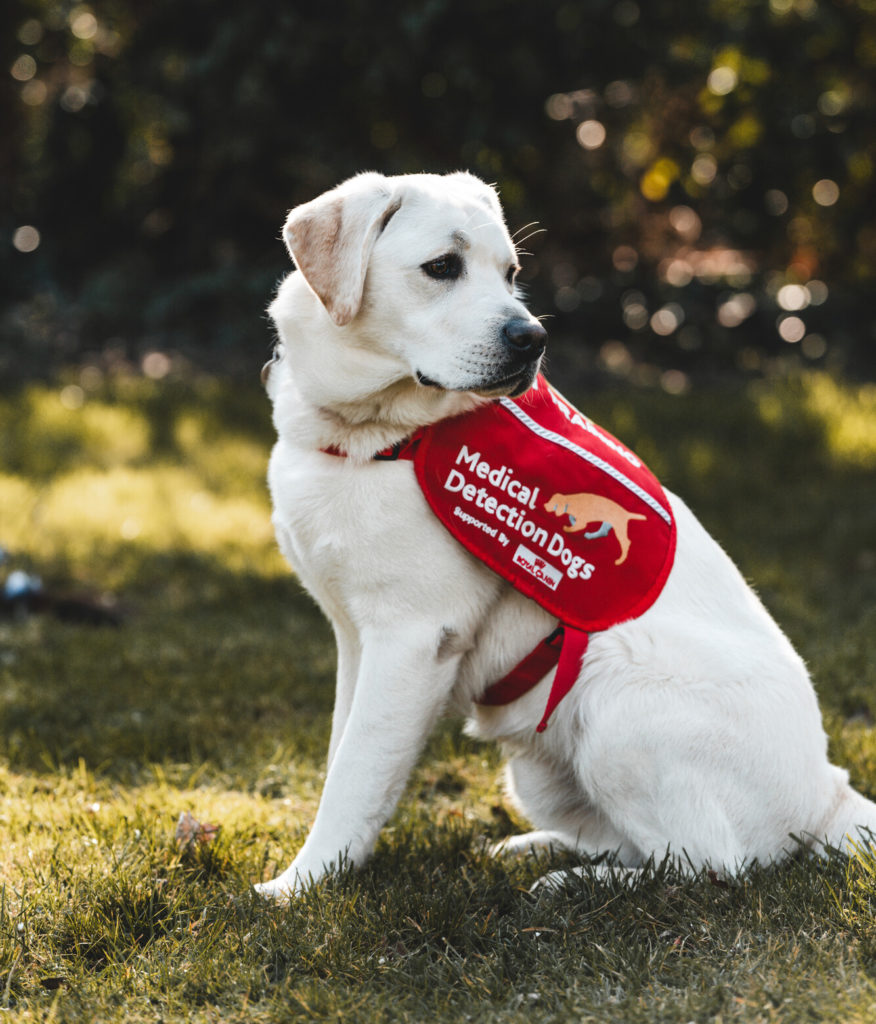Assistance Dogs UK is a coalition of assistance dog charities that have been accredited by one of the two leading global authorities in the assistance dog industry, namely Assistance Dogs International and The International Guide Dog Federation.
The charities that makeup ADUK are passionate about working to the highest standards of assistance dog training and welfare and spend up to two years preparing a dog to be partnered with a disabled person. During this time, dogs in training are exposed to a range of environments and social situations, where they are assessed to ensure that they are confident and capable and will thrive in their role.

Assistance dogs are dogs that have been highly trained to carry out a range of tasks and alerts in order to support their disabled partner. Assistance dogs come in all shapes and sizes and support a wide range of disabled people and people with long term medical conditions or impairments, from deaf people to autistic children and ex-military personnel with PTSD.
The dedicated staff and volunteers at ADUK member organisations also offer ongoing training and support to all the people and dogs they work with, for the lifetime of the partnership.
Whilst all ADUK member trained assistance dogs will be identifiable through a lead slip, jacket or harness and normally carry an ID book or app, this is not a legal requirement. Not all assistance dogs are trained by ADUK member organisations, but all assistance dogs should be highly trained and according to the Equality and Human Rights Commission (EHRC):
- will not wander freely around the premises
- will sit or lie quietly on the floor next to their owner
- are unlikely to foul in a public place
The Law
The Equality Act 2010 protects the rights of disabled people who rely on highly trained assistance dogs. Anyone offering a service to the public should make reasonable adjustments to ensure that a disabled person can access their venue, goods or services. Other than in exceptional circumstances, this would mean giving a disabled person and their assistance dog access.
Legally, assistance dogs are considered to be ‘auxiliary aids’ and should not be treated the same as pet dogs. This means that even if a business or venue has a no dog policy, they should allow access to a disabled person with an assistance dog.
The Equality Act 2010 does not reference other animals fulfilling such roles, nor does it make any reference to emotional support dogs (dogs that offer comfort and support by being present but that have not been highly trained to support a disabled person as an auxiliary aid).
If an assistance dog does not behave in line with the EHRC’s expected behaviours then it could be considered reasonable for a service provider to ask a person to remove their dog or not allow them access in the first place.
The way assistance dogs are currently defined and referenced in law does not address the training standards or the welfare needs of assistance dogs and ADUK would welcome discussions about how to improve clarity on this.
ADUK is producing a range of education and training tools that will be available in the Autumn of 2022. These resources will be free to use, and we hope that they will further the general public’s understanding of assistance dogs and the needs and rights of disabled people who rely on them.
Assistance Dogs UK is a registered charity – number 1119538
ADUK does not claim to represent all assistance dog charities or owners.
Not all assistance dogs In the UK will have been trained by an ADUK member.